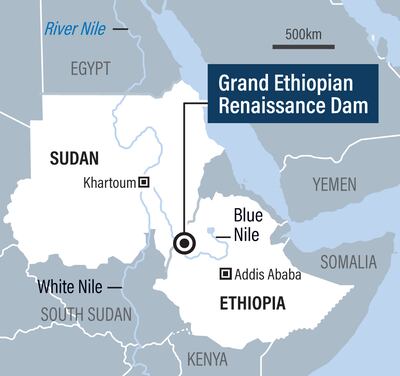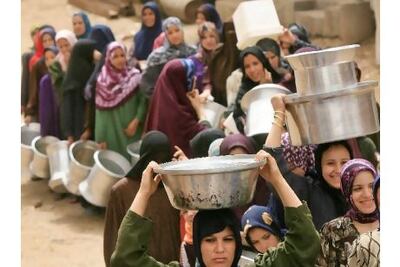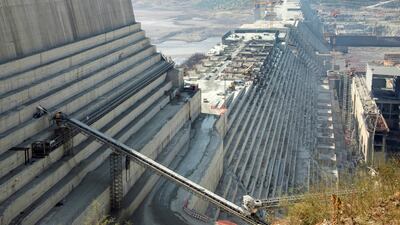Egypt wants to see an agreement “as soon as possible” on Ethiopia's filling and operation of a massive hydroelectric dam on the Nile, President Abdel Fattah El Sisi said on Sunday.
Downstream Egypt fears the Grand Ethiopian Renaissance Dam, also known as Gerd, will significantly reduce its share of the Nile waters, on which it depends for more than 90 per cent of its fresh water needs.
A sizeable reduction, it has said, would wipe out hundreds of thousands of jobs and upend its delicate domestic food security. Egypt has described the dispute with Ethiopia as an “existential issue.”
Using a video link to address an international meeting on water in Cairo, Mr El Sisi said Egypt was among the world’s most “water poor” countries. The annual per capita share of water for Egypt’s 100 million people stands at 560 cubic meters, or about half the 1,000 cubic meters the UN has set as the threshold of water poverty, he said.
“Egypt is among the worst drought-hit countries with one of the smallest rainfall averages, that in turn leads to an almost exclusive dependence on the Nile waters,” he said.

“I would like to emphasise that we are looking to reach, as soon as possible and without further delay, a balanced and legally-binding agreement on this,” he said.
He said Egypt would like to see Ethiopia using the dam to fulfil its development aspirations, but with water, social and environmental consequences on his country and fellow downstream ally Sudan kept at a minimum.
Egypt and Sudan have been engaged in on-and-off negotiations with Ethiopia over the Gerd for a decade without reaching a deal. Their last round of African union-sponsored negotiations was held in April in the Democratic Republic of Congo until it broke down amid acrimonious exchanges.
Ethiopia has repeatedly sought to reassure Egypt and Sudan that they would not be harmed by the Gerd. At the same time, it has insisted that it would agree to guidelines on the operation and filling of the dame, not a legally-binding agreement as Khartoum and Cairo demand. Ethiopia has also rejected their offer of involving the UN, the US, the EU and the African Union in the talks.

Mr El Sisi told Sunday’s meeting that Egypt intends to spend at least $50 billion until 2037 to better manage and increase its water resources.
The funds, which he said could double, would be spent on improving water treatment centres, developing new water sources through desalination and making better use of irrigation water.


